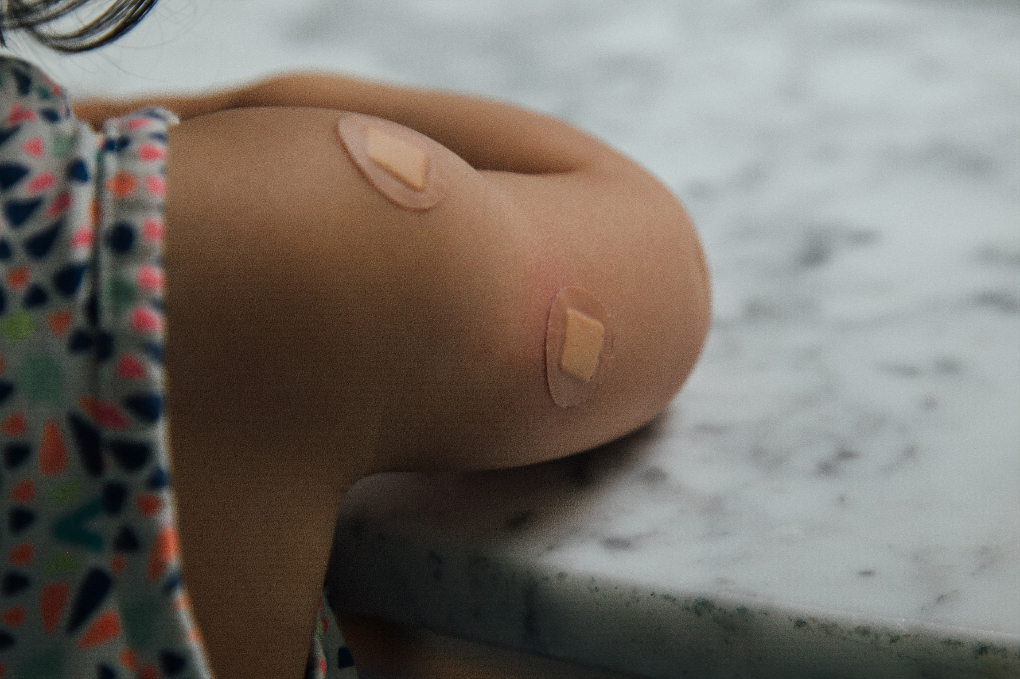Did you know cervical cancer is the leading cause of cancer mortality in women? You will be surprised to know that in India, 17% of all cancer deaths in women are attributed to cervical cancer. The human papillomavirus (HPV), which is the most common sexually transmitted infection (STI) is also the most common culprit of cervical cancer. While most HPV infections are short-lived, some high-risk types can linger and lead to pre-cancerous cells and ultimately, cancer if not addressed early. In the last decade, one of the best innovations in healthcare was the HPV vaccination as it is greater than 95% effective at reducing the risk of cervical cancer. Here’s why you should consider getting the HPV vaccination.
What is HPV and how does it cause cervical cancer?
HPV or Human Papillomavirus is one of the most prevalent sexually transmitted viruses with over 200 different strains. There are a select few strains that are called “high-risk” types because if they persist it can cause the cells in your cervix to transform into precancerous cells and eventually cervical cancer if left unchecked. HPV 16 and 18 are the most common high-risk type that cause around 70% of all cervical cancers. This is why routine screening with a Pap Smear, HPV test or with colposcopy (visual test with a camera and different staining solutions) is still a must.
What is the HPV vaccine?
HPV vaccines are designed to protect you from the HPV types that cause cervical cancer and two vaccines protect against the HPV type causing genital warts. There are three approved types of HPV vaccines approved in India at this time which differ in the number of HPV strains they cover:
- Cervarix (bivalent) covering types 16 & 18
- Gardasil (quadrivalent) covering types 6, 11, 16, & 18
- Gardasil 9 (nonavalent) covering types 6, 11, 16, 18, 31, 33, 45, 52, and 58.
Usually these are given as a series of two or three vaccines given over a period of months. They offer long-lasting immunity and are >95% effective at reducing the risk of cervical cancer from the strains they cover. There is still a small chance of developing cervical cancer from a strain not covered by the vaccine you receive, meaning routine screening is still required. In addition, the vaccine doesn’t work if you’ve already acquired one of these high risk types of HPV. These HPV strains can also cause other types of cancer, such as anal, oropharyngeal, vulvar, and vaginal cancers, and the vaccine protects against these too!
Why do Indian women need to get the HPV vaccine?
Approximately every 8 minutes an Indian woman dies of cervical cancer. Right now India accounts for nearly 1/3 of the total number of cervical cancer deaths worldwide. So protect yourself against cervical cancer and get the HPV vaccine! Most countries have a universal vaccination program that has substantially reduced their rates of cervical cancer, however, cost and stigma have prevented this from becoming a national government priority in India.
Don’t believe that HPV will affect you? It is estimated that more than >75% of sexually active women will acquire genital HPV by 50 years of age. Ask your Veera doctor to find out how you can protect yourself!
Who should get the HPV Vaccination?
Currently, the WHO recommends routine vaccination between ages 9-14, but per the Centre of Disease Control and Prevention should be given to anyone between 9-26 years of age who hasn’t received the vaccine or completed the 2-to-3 part series. If you’re above the age of 26, you can ask your doctor if you should still get it as it is approved through age 45. The vaccine is also approved for boys starting at age 9 in other countries (how’s that for equality!).
Ideally, women should get the vaccine before they are sexually active, as they may already be exposed to HPV and the vaccine may be less beneficial. If you’re pregnant, it is best to wait until after pregnancy to complete the vaccine series. So far, studies have shown that there are no risks to the foetus, however more research is needed. People who have HIV or are immunocompromised are at greater risk for HPV-related infections and cancers, therefore should also be immunized.
Are there any risks?
Side effects from the vaccines are rare and mild, including pain at the place of injection, fever, dizziness and nausea. Some people faint when receiving any time of vaccine, therefore it is given while seated or lying down to prevent injuries from falling. No major or serious side effects have been reported.
Do we have to say more to convince you? Go out and get vaccinated! We’ve also debunked some of the most common myths surrounding HPV vaccination which may have prevented you from getting the vaccine in the past. Stay healthy, Veera ladies!
Reviewed By Dr. Shailly Prasad, MD, MBA, Resident Physician, Obstetrics & Gynecology.
Disclaimer: Content on Veera is provided for informational purposes only and is not intended as medical advice or as a substitute for medical advice given by a physician or trained professional.
Sources:[1] Bobdey S, Sathwara J, Jain A, Balasubramaniam G. Burden of cervical cancer and role of screening in India. Indian J Med Paediatr Oncol. 2016 Oct-Dec;37(4):278-285. doi: 10.4103/0971-5851.195751. PubMed PMID: 28144096; PubMed Central PMCID: PMC5234166.[2] Lee LY, Garland SM. Human papillomavirus vaccination: the population impact. F1000Res. 2017 Jun 12;6:866. doi: 10.12688/f1000research.10691.1. eCollection 2017. Review. PubMed PMID: 28663791; PubMed Central PMCID: PMC5473416.[3] Kaarthigeyan K. (2012). Cervical cancer in India and HPV vaccination. Indian journal of medical and paediatric oncology : official journal of Indian Society of Medical & Paediatric Oncology, 33(1), 7–12. https://doi.org/10.4103/0971-5851.96961


















